Welcome to paperChain
Innovative new circular business models
Most of the current waste streams generated by the Pulp & Paper industry (PPI) are currently disposed to landfills or burnt for energy production. Inorganic wastes are basically used as cement raw material and to a lesser extent as soil amendment in forestry applications. These solutions have a low added value and are dependent on the existence of cement kilns and acid soils in the vicinity of the mills, reducing their potential valorisation. Although there is extensive academic research on the waste valorisation to enhance the utilization of paper mill waste streams, there is still a lack of alternatives proved at real scale under operational conditions.
Paperchain is a demonstrative project that proposes innovative applications for different underused PPI waste streams, proving their technical, economic and environmental feasibility in five circular business models through real scale pilots.The project aims at unlocking the situation that hinders the proposed solutions to reach the market, including not only technical issues, but legal, social and economic factors.
To overcome these barriers, the project has involved the whole value chain and provides transparency of their outcomes, being public awareness a priority.
paperChain at a glance
The overall objective of PAPERCHAIN is to deploy five novel circular economy models centred in the valorisation of the waste streams generated by the Pulp and Paper Industry (PPI) as secondary raw material for a number of resource intensive sectors: construction sector, mining sector and chemical industry.
The Project
The Consortium
Circular Cases
REAL SCALE DEMONSTRATORS
Want to meet the Consortium?
News
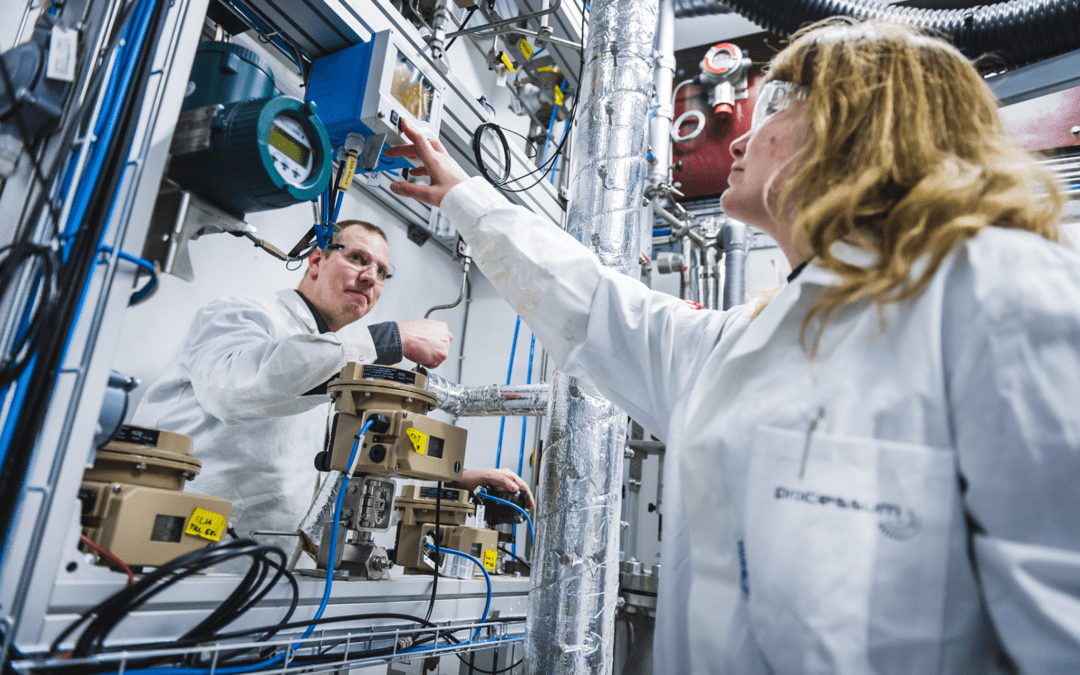
Residual Stream from the Pulp- and Paper Industry can be Processed into Versatile Chemical
The transition towards a circular economy is one of the cornerstones in achieving the global climate goals. This means that resources must be used more efficiently and through new innovative technologies. For example, residual streams from the pulp- and paper industry...
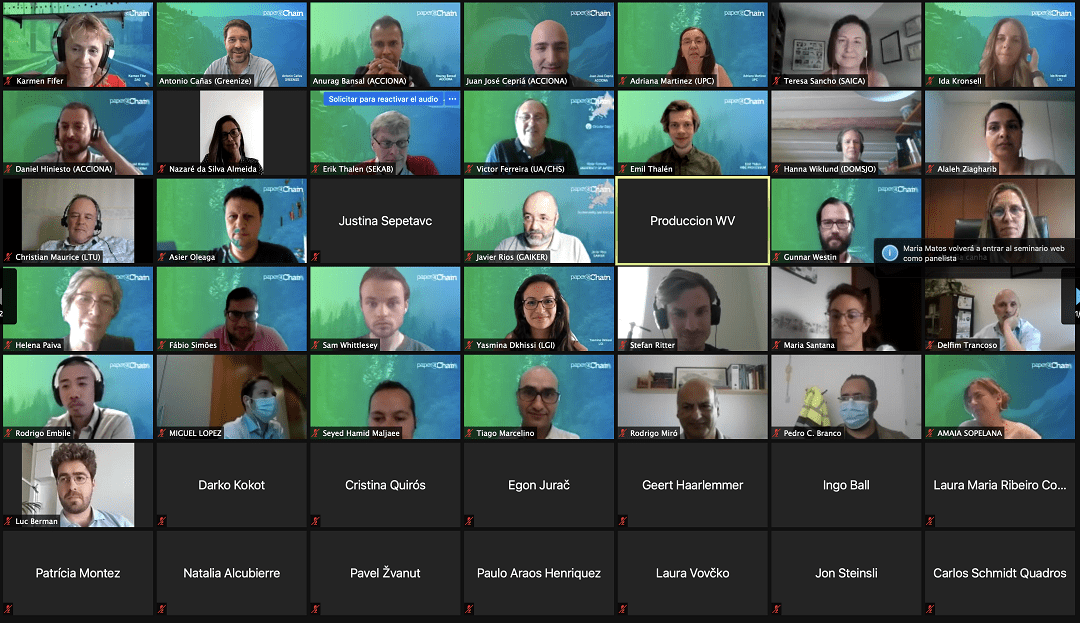
The final event of the paperChain project
The final event of the paperChain project was held last Friday 18th June with a resounding success of participation and with the satisfaction of being able to share a well-executed project with excellent results. PaperChain is focused on the creation of new business...
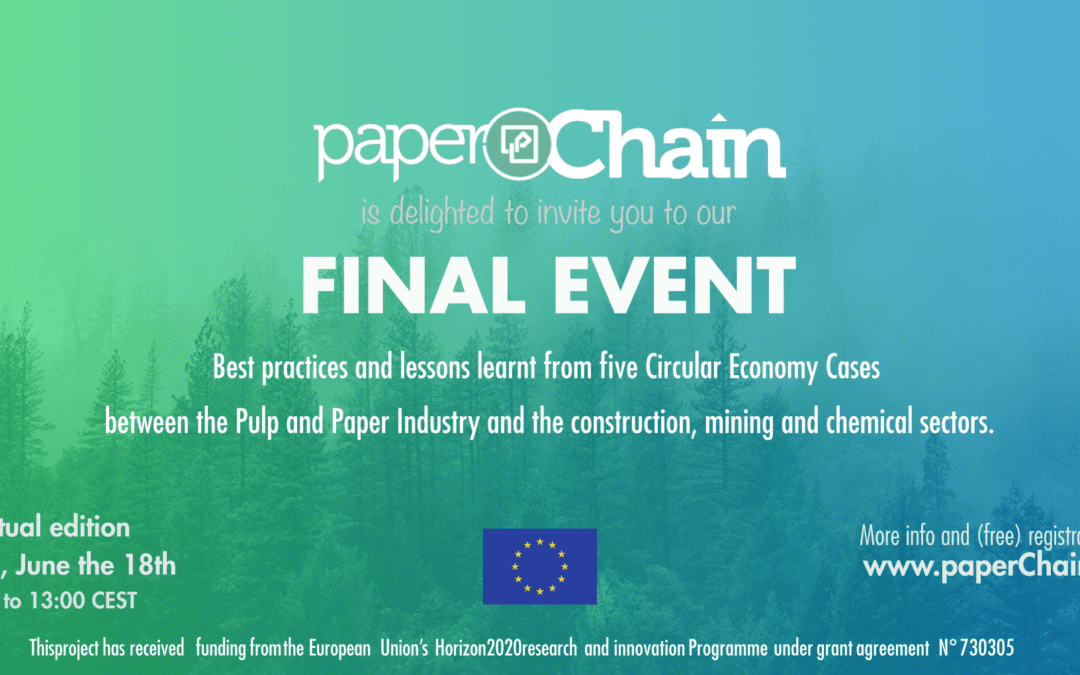
paperChain: Final Event
As you may know, our paperChain project www.paperchain.eu has been running for the last four years and in a few months will see its completion. In this last stage of the project we have already implemented five innovative Circular Cases and we are pleased to share...
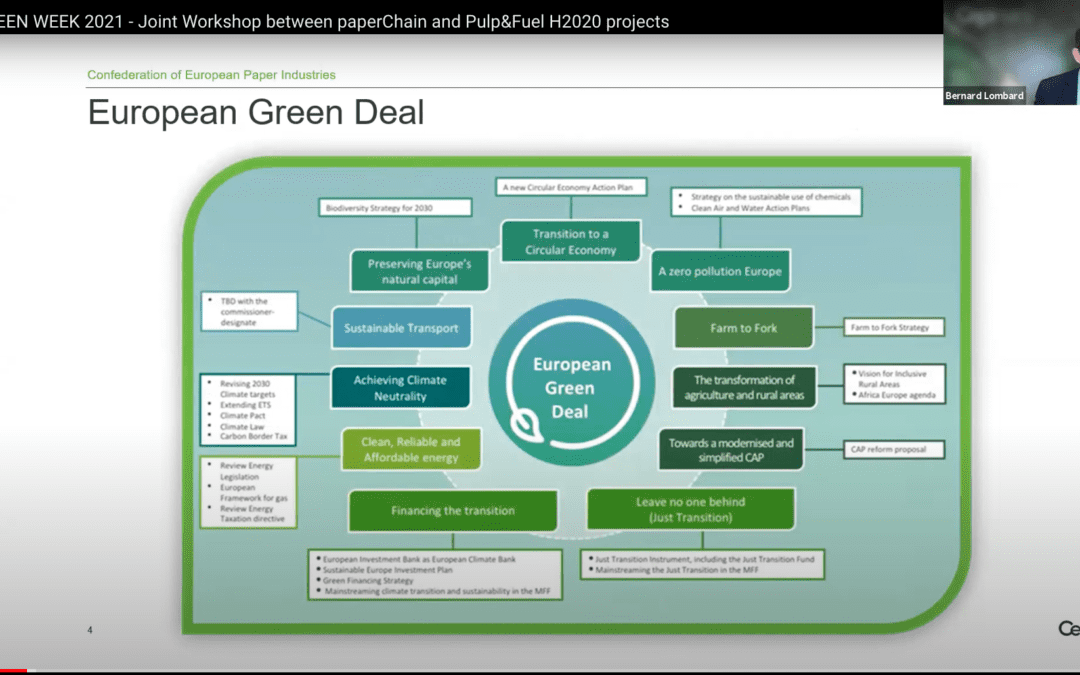
EU GREEN WEEK 2021
PaperChain has actively participated in the Horizon Results Booster (HRB) program. As a result of the development of this service and thanks to it, we got in touch with the Pulp&Fuel project. The reason for the choice was that we found synergies with this sister...

